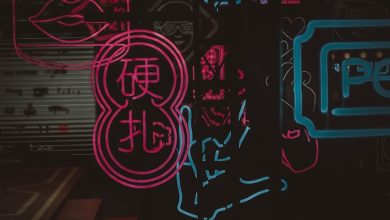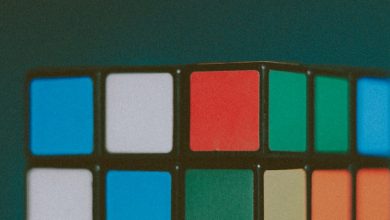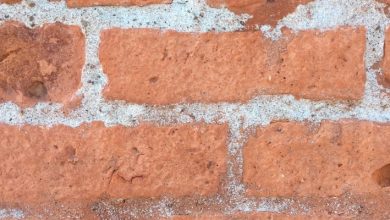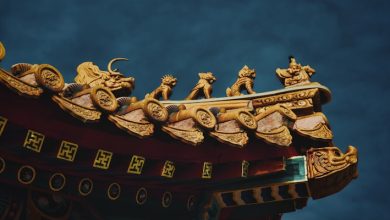What is a DAO? A Guide to Decentralized Autonomous Organizations
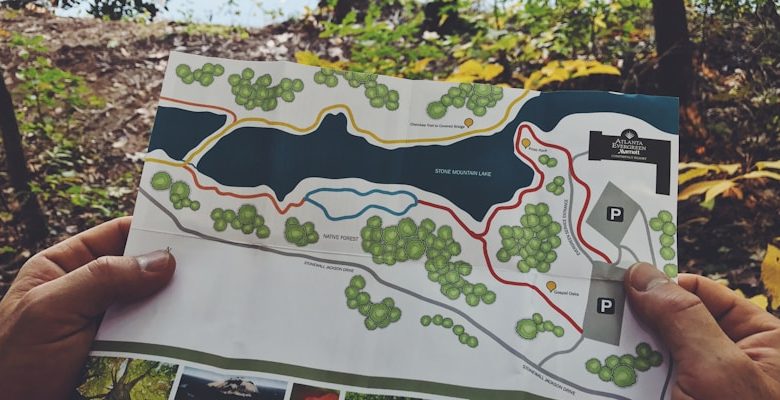
- Understanding the concept of DAOs
- How DAOs are changing the landscape of organizations
- Features and benefits of Decentralized Autonomous Organizations
- Challenges and risks associated with DAOs
- Examples of successful DAOs in the industry
- The future of decentralized governance: What lies ahead for DAOs
Understanding the concept of DAOs
Decentralized Autonomous Organizations (DAOs) are a revolutionary concept in the world of blockchain and cryptocurrency. DAOs are essentially organizations that are run by smart contracts on a blockchain, rather than by a centralized authority. This means that decision-making processes, governance structures, and operations are all automated and executed according to pre-defined rules encoded in the smart contracts.
DAOs operate on the principle of decentralization, which means that there is no single point of control or failure. Instead, decisions within a DAO are made collectively by its members through voting mechanisms built into the smart contracts. This ensures transparency, trust, and accountability within the organization, as all actions are recorded on the blockchain and can be audited by anyone.
One of the key advantages of DAOs is their ability to operate without the need for intermediaries or middlemen. This reduces costs, increases efficiency, and minimizes the risk of fraud or manipulation. Additionally, DAOs can operate 24/7 without the need for human intervention, making them highly resilient and adaptable to changing market conditions.
It is important to note that while DAOs offer many benefits, they also come with their own set of challenges and risks. Security vulnerabilities, regulatory uncertainties, and governance issues are some of the potential pitfalls that DAOs may face. However, as the technology matures and evolves, these challenges are being addressed through improved protocols, standards, and best practices.
In conclusion, DAOs represent a new paradigm in organizational design that has the potential to revolutionize how businesses and communities operate. By leveraging the power of blockchain technology and smart contracts, DAOs offer a more efficient, transparent, and democratic way of organizing human activity. As the ecosystem continues to grow and develop, DAOs are expected to play an increasingly important role in shaping the future of work, governance, and collaboration.
How DAOs are changing the landscape of organizations
Decentralized Autonomous Organizations, or DAOs, are revolutionizing the traditional organizational structure by leveraging blockchain technology to create transparent and efficient systems of governance. DAOs operate without the need for centralized control, using smart contracts to automate decision-making processes and ensure that all members have a say in the direction of the organization.
One of the key ways in which DAOs are changing the landscape of organizations is by enabling greater inclusivity and participation. With traditional organizations, power and decision-making authority are typically concentrated in the hands of a few individuals at the top. In contrast, DAOs distribute decision-making power among all members, allowing for a more democratic and equitable system of governance.
Additionally, DAOs are able to operate 24/7, without the need for human intervention. This means that decisions can be made quickly and efficiently, without the delays and inefficiencies that can arise in traditional organizations. By automating decision-making processes through smart contracts, DAOs are able to streamline operations and reduce the potential for human error.
Furthermore, DAOs are highly transparent, with all transactions and decisions recorded on the blockchain for all members to see. This level of transparency helps to build trust among members and ensures accountability at all levels of the organization. By creating a system of governance that is open and transparent, DAOs are able to foster a culture of trust and collaboration among members.
Features and benefits of Decentralized Autonomous Organizations
Decentralized Autonomous Organizations (DAOs) offer a wide range of features and benefits that make them an attractive option for individuals and businesses looking to operate in a decentralized and autonomous manner. One of the key features of DAOs is their ability to operate without the need for a central authority or intermediary. This means that decisions within a DAO are made collectively by its members, rather than being dictated by a single entity.
By operating on a blockchain-based platform, DAOs also benefit from increased transparency and security. All transactions and decisions made within a DAO are recorded on the blockchain, ensuring that they cannot be altered or tampered with. This level of transparency helps to build trust among members of the DAO, as they can verify the integrity of the organization’s operations at any time.
Another key benefit of DAOs is their ability to operate 24/7, without the need for human intervention. Because DAOs are powered by smart contracts, they can automatically execute transactions and carry out other functions according to predefined rules and conditions. This automation not only saves time and resources but also reduces the risk of human error or manipulation.
Additionally, DAOs offer a high degree of flexibility and scalability, allowing them to adapt to changing circumstances and grow as needed. Members of a DAO can propose and vote on changes to the organization’s structure or operations, ensuring that it remains agile and responsive to the needs of its stakeholders. This ability to evolve and innovate sets DAOs apart from traditional centralized organizations, which may struggle to keep pace with rapidly changing markets and technologies.
Overall, the features and benefits of DAOs make them a powerful tool for promoting decentralization, transparency, and autonomy in a wide range of industries and applications. As more individuals and businesses recognize the potential of DAOs, we can expect to see their widespread adoption and integration into various aspects of our economy and society.
Challenges and risks associated with DAOs
When it comes to Decentralized Autonomous Organizations (DAOs), there are various challenges and risks that need to be taken into consideration. These entities operate on blockchain technology, which brings about its own set of unique challenges.
One of the main challenges associated with DAOs is the lack of regulatory oversight. As these organizations are decentralized and operate autonomously, there is no central authority that can enforce regulations or intervene in case of fraudulent activities. This lack of oversight can leave investors vulnerable to scams and other malicious activities.
Another risk of DAOs is the potential for security breaches. Since these organizations rely on smart contracts to execute their operations, any vulnerabilities in the code can be exploited by hackers. This can result in the loss of funds or sensitive information, which can be detrimental to the DAO and its members.
Additionally, DAOs face challenges related to decision-making and governance. Without a central authority to mediate disputes or make critical decisions, conflicts can arise among members that may be difficult to resolve. This can lead to inefficiencies in the operation of the organization and hinder its ability to achieve its objectives.
Overall, while DAOs offer many benefits in terms of decentralization and transparency, it is important to be aware of the challenges and risks associated with these entities. By understanding these potential issues, stakeholders can take proactive measures to mitigate risks and ensure the success of their DAO.
Examples of successful DAOs in the industry
Some examples of successful decentralized autonomous organizations (DAOs) in the industry include:
- 1. The DAO: One of the earliest and most well-known DAOs, The DAO aimed to create a decentralized venture capital fund. However, it faced a significant setback when a vulnerability in its code was exploited, leading to the loss of a large amount of funds. Despite this, The DAO paved the way for future DAO projects to learn from its mistakes and improve security measures.
- 2. MakerDAO: MakerDAO is a successful decentralized organization that operates on the Ethereum blockchain. It is best known for creating the stablecoin DAI, which is pegged to the US dollar. MakerDAO uses a voting system to make decisions on monetary policy and governance, allowing token holders to have a say in the direction of the organization.
- 3. Aragon: Aragon is a platform that allows users to create and manage decentralized organizations on the blockchain. It provides tools for governance, fundraising, and decision-making, making it easier for individuals and groups to launch their own DAOs. Aragon has gained popularity for its user-friendly interface and customizable features.
These examples demonstrate the potential of DAOs to revolutionize traditional organizational structures by enabling transparent, decentralized decision-making processes. As the technology continues to evolve, we can expect to see even more innovative and successful DAO projects emerge in the future.
The future of decentralized governance: What lies ahead for DAOs
Looking ahead, the future of decentralized governance and DAOs appears to be promising. As technology continues to advance, DAOs are likely to become more prevalent in various industries, offering a new way for organizations to operate autonomously. With the potential to streamline decision-making processes, reduce administrative costs, and increase transparency, DAOs could revolutionize the way businesses are run.
One of the key challenges facing DAOs is regulatory uncertainty. As governments around the world grapple with how to classify and regulate these autonomous organizations, it remains to be seen how DAOs will be able to navigate this complex landscape. However, as more clarity emerges around regulatory frameworks, DAOs may become more widely adopted.
Another area of development for DAOs is in their governance structures. As DAOs mature, there will likely be a greater emphasis on establishing robust governance mechanisms to ensure that decisions are made in the best interest of the organization and its members. This could involve developing voting mechanisms, dispute resolution processes, and mechanisms for updating the organization’s code.
Overall, the future of decentralized governance and DAOs is bright, with the potential to transform the way organizations are structured and operated. While there are still challenges to overcome, the benefits of DAOs are clear, and it is likely that we will see continued innovation in this space in the years to come.
